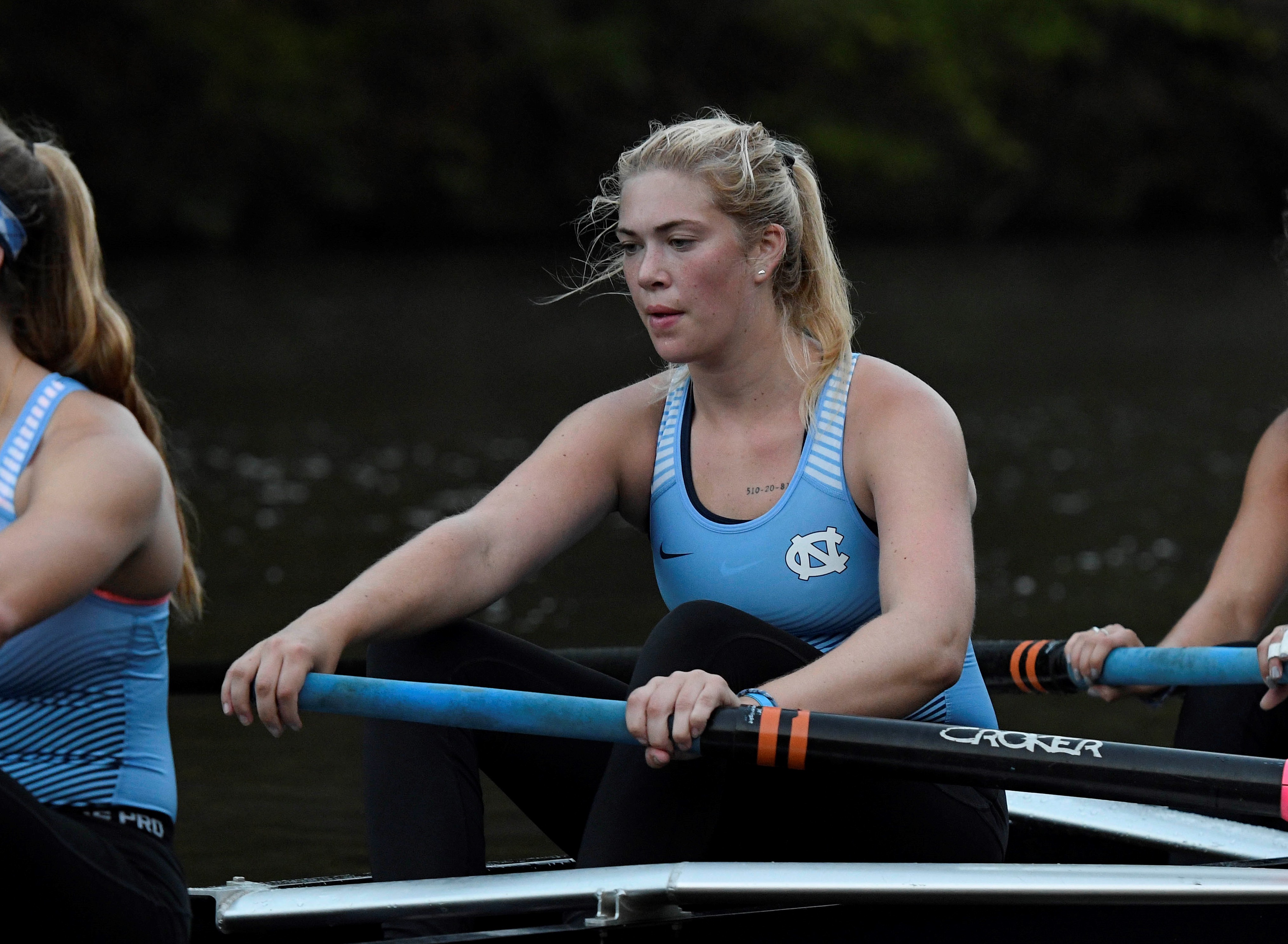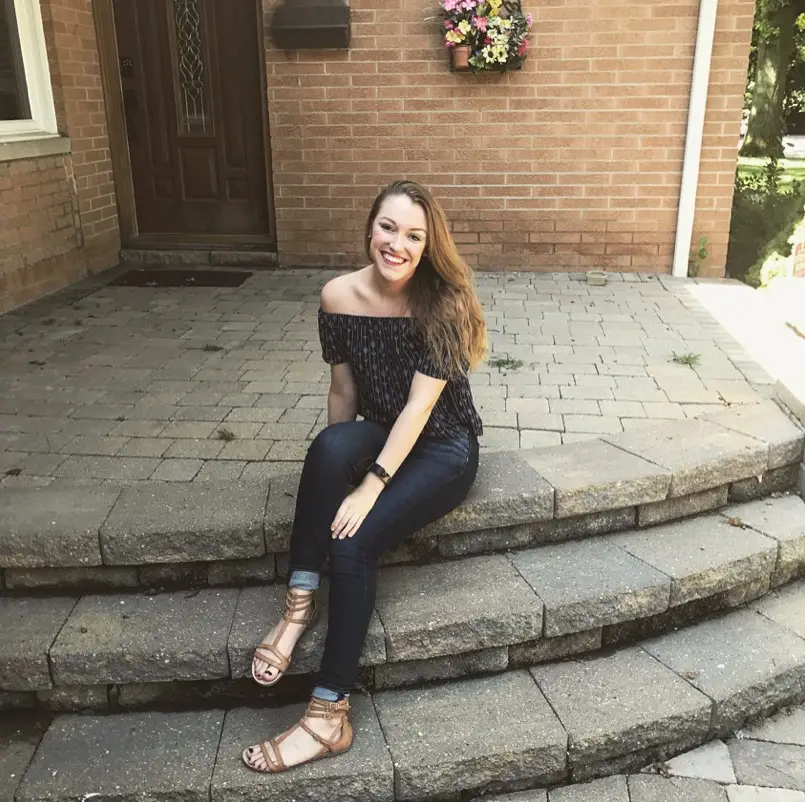Being in sports opens so many doors for students, including the opportunity to make friends, to better yourself both physically and mentally, to boost confidence and to learn what being a part of a team really is. With that in mind, Kate Hickert and her friends at UNC aim to make sure these opportunities brought about by sports reach other girls as well.
As a representative of a sport not everyone is familiar with, Hickert, a senior at UNC Chapel Hill majoring in exercise and sports science, attended Girls and Women in Sport’s Day to inspire young girls to join sports of all kinds.
With a record number of participants coming to the UNC event, she and other members of the rowing team spent the day in awe as they introduced young female participants to various rowing equipment.
To Hickert herself, the joy brought to the young girls reminded her of why she got into rowing in the first place when she was just 14.
Like many of the girls at UNC’s Girls and Women in Sports Day, Hickert was inspired by someone already familiar with the sport to begin playing. Feeling as though she wasn’t good at sports, she never figured she would be able to compete at a D1 level until she was recruited by UNC her senior year of high school.
Haley Newlin: You said that the success of UNC’s Girls and Women in Sports Day reminded you of when you got into rowing yourself. How did you get involved?
Kate Hickert: While I was volunteering at a summer camp for people with different abilities, one of the counselors, who happened to row for Clemson University, commented on my height (I have been 6’1” since I was twelve). She told me that I would make a good rower and because I had not been good at sports before, I decided to try it and ended up really enjoying it.
HN: Do you feel women face obstacles when trying to be a part of sports that maybe men don’t?
KH: I am fortunate to be able to attend a school that values all of its Olympic women’s sports so highly. However, I know that many women (especially those in male-dominated sports) have difficulty finding places to play.
My roommate, Jessie Aney, is on the tennis team at UNC. Growing up in Minnesota, she played hockey and loved it, but because of a lack of D1 programs, she made the difficult decision to pursue tennis instead of hockey.
So, yes, I do think it’s very difficult for women to find equal opportunities in athletics, and I think that is representative of the difficulty women have finding equal opportunities in the world in general.
HN: What advice do you have for girls to overcome obstacles to be able to participate in the sport they desire?
KH: My advice is to fight like a girl. I know women who have such tenacity, grit and strength that they were able to break through whatever boundaries the society’s standards set for them. If every woman fights with all the power inside of her, I know that we can level the playing field and amaze everyone.
HN: As a participant of UNC’s competitive rowing team, why is it important to you that girls are more involved in sports?
KH: For so long, athletics was a man’s world and women were just existing in it. Then, slowly but surely, women were able to prove that they were powerful, too. Sports role models began to change from males to females, and young girls started to realize they could be strong.
Going to UNC, our women’s soccer team has one of the most winning historical records out of any sports team, gender and school in the United States. Being friends with these girls as well as girls on any of the sports teams here at UNC inspire me to be stronger because I know together we can model a better future for any of the young girls following our athletic careers.
HN: Why do you think it is important for girls to get involved in possibly less common sports such as field hockey, rowing, lacrosse vs. basketball, volleyball and softball?
KH: I think it’s important for girls to explore a multitude of sports, which is why programs such as National Women and Girls in Sports Day are so phenomenal. They introduce girls to so many different sports in one day.
While some sports get more acclaim than others, I think it’s more important for girls to find what they’re truly passionate about because that’s how they will succeed and break boundaries.
HN: What was it like teaching young girls about rowing at UNC’s Girls and Women in Sports Day?
KH: It was amazing. Seeing their faces light up when they held an oar or when they got on the erg reminded me how much fun my sport could be. Being a collegiate athlete is not easy, and many days you can forget why you wanted this so badly.
Seeing the joy on the girls’ faces helped me remember how it felt when I just began rowing and reinvigorated me for the start of the season.
HN: This year’s theme for UNC’s National Girls and Women in Sports Day was Play Fair. The Daily Tar Heel stated this theme was meant to empower women and girls and give them courage, confidence and character to push their limits. How do you feel that being a part of a women’s rowing team has empowered you to push your own limits?
KH: Growing up as a 6’1” 12-year-old, I was very self-conscious. I had a lot of anxiety in social settings and I was never very good at sports. Once I began rowing, I found a new type of confidence because finally being tall was a good thing!
It also helps young girls to be successful and trying out different sports is a good way to help them find their niche so that they are comfortable to push their limits.
HN: What efforts would you like to see in society to not only empower women in sports, but everyday life?
KH: I want society to see us as equals. It’s pretty simple, and I don’t think it’s asking too much, either. We are all strong individuals who are just as capable as any other person, and I think we should be treated that way.

















